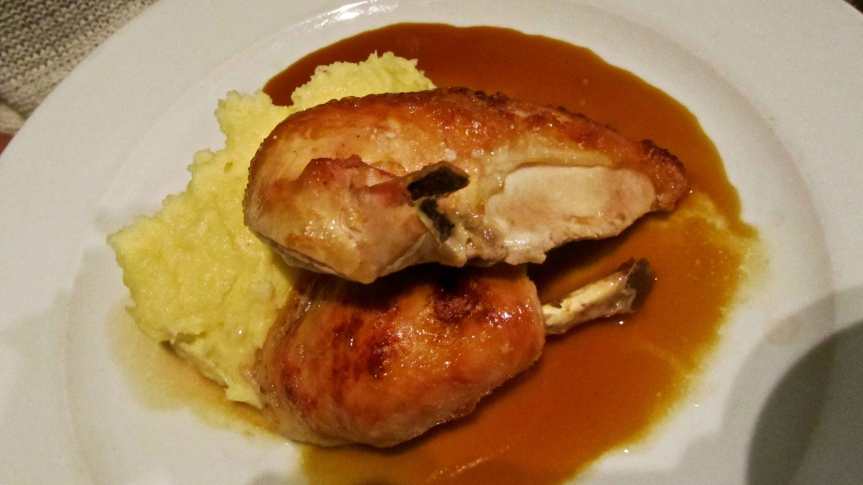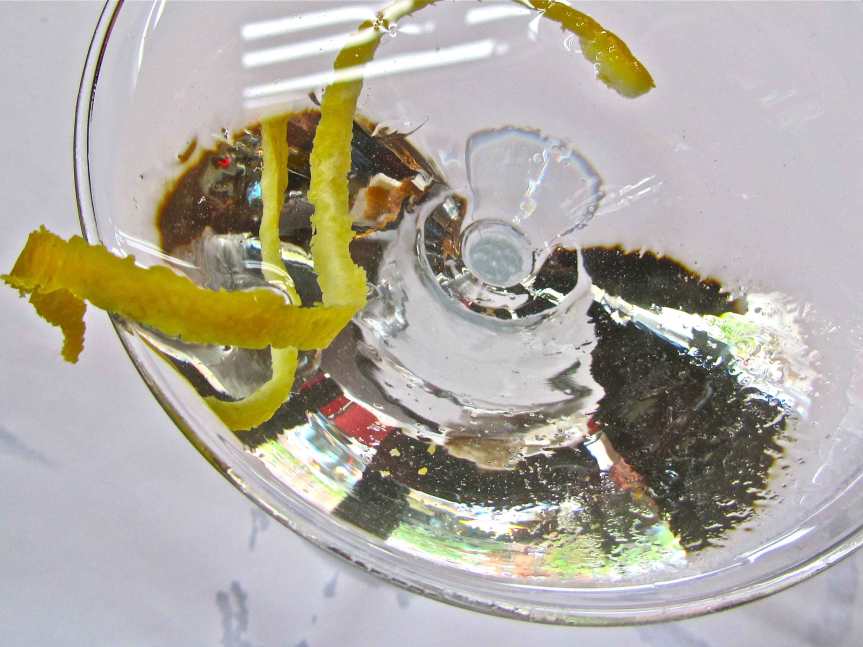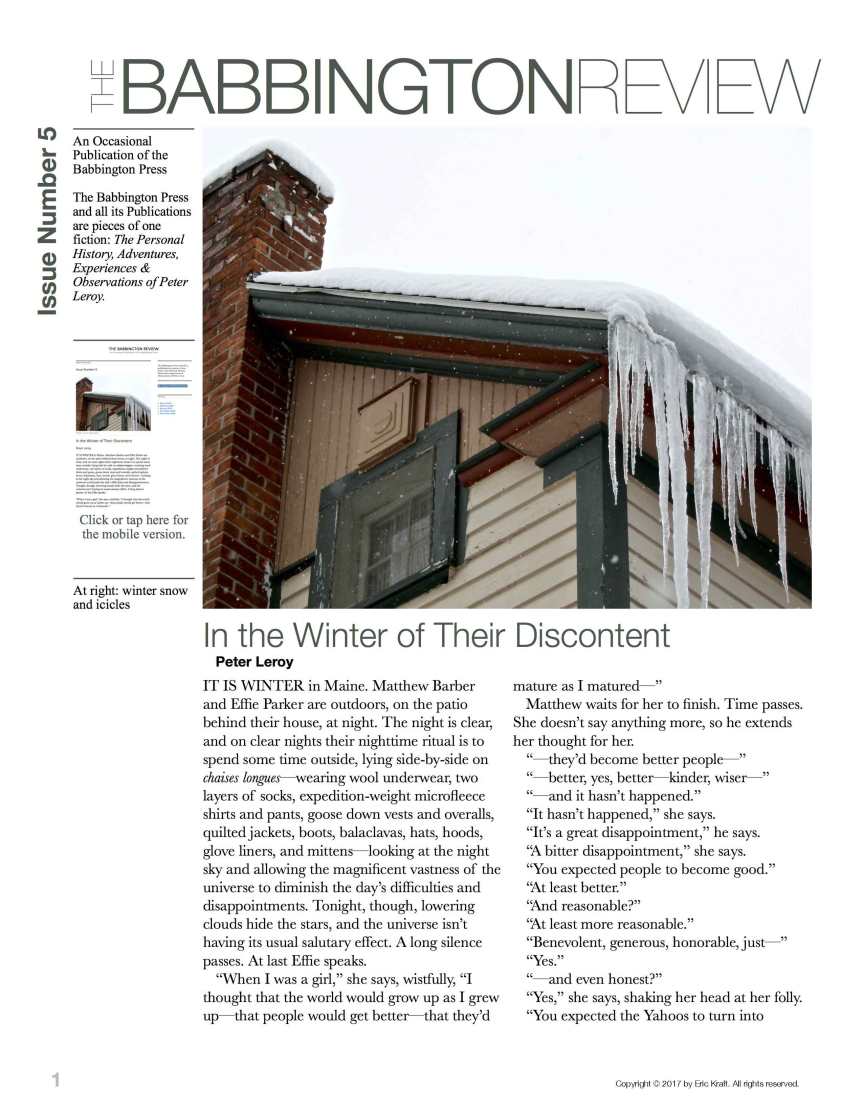
In the Winter of Their Discontent
Peter Leroy
IT IS WINTER in Maine. Matthew Barber and Effie Parker are outdoors, on the patio behind their house, at night. The night is clear, and on clear nights their nighttime ritual is to spend some time outside, lying side-by-side on chaises longues—wearing wool underwear, two layers of socks, expedition-weight microfleece shirts and pants, goose down vests and overalls, quilted jackets, boots, balaclavas, hats, hoods, glove liners, and mittens—looking at the night sky and allowing the magnificent vastness of the universe to diminish the day’s difficulties and disappointments. Tonight, though, lowering clouds hide the stars, and the universe isn’t having its usual salutary effect. A long silence passes. At last Effie speaks.
“When I was a girl,” she says, wistfully, “I thought that the world would grow up as I grew up—that people would get better—that they’d mature as I matured—”
Matthew waits for her to finish. Time passes. She doesn’t say anything more, so he extends her thought for her.
“—they’d become better people—”
“—better, yes, better—kinder, wiser—”
“—and it hasn’t happened.”
“It hasn’t happened,” she says.
“It’s a great disappointment,” he says.
“A bitter disappointment,” she says.
“You expected people to become good.”
“At least better.”
“And reasonable?”
“At least more reasonable.”
“Benevolent, generous, honorable, just—”
“Yes.”
“—and even honest?”
“Yes,” she says, shaking her head at her folly.
“You expected the Yahoos to turn into Houyhnhnms.”
“That’s it. You’ve got it. That’s what I expected. A world of Houyhnhnms.”
Another silence passes. After a minute or two, Effie laughs a bitter little laugh and says, “You know what?”
“What?” asks Matthew.
“I’m going to make a confession.”
“Go ahead.”
“I don’t like them.”
“You mean Yahoos”
“That’s right. My generosity of spirit does not extend to Yahoos.”
He chuckles. Then he says, “Well, I’ll confess that I can’t stand them!”
They turn toward each other. They regard each other with astonishment. They’ve kept this from each other for years.
“They disgust me!” she nearly shouts.
“Me, too!” says Matthew.
“I tried,” says Effie, shaking her head. “You know I tried.”
“I do. I know that. I know you tried.”
“I really did. I tried to feel compassion for even the crudest and most vicious of people, but—” She doesn’t finish. She shakes her head again. She’s on the verge of tears.
“We’ve been trying to love all of our fellow creatures,” he says, “even the ones that in our heart of hearts we completely despise!”
Effie bursts out laughing. Again, it’s bitter laughter, but it is laughter. “What a pair of fools we’ve been!”
Matthew tries to join her in her laughing, but he can’t quite manage it.
“Can we go inside now?” he asks. “I’m freezing.”
“And I could use a drink,” says Effie.
INSIDE, Matthew pours a tumbler of scotch for each of them and begins building a fire.
“They’re greedy,” says Effie, “and I prefer generous people. I like the ones who say, ‘After you,’ not the ones who say, ‘Me first.’”
“Or, ‘Get outta my way!’” says Matthew.
“And they’re full of hate,” says Effie.
“There’s no love in their hearts,” says Matthew. “There’s hate in their hearts.”
“Well—they love to hate,” says Effie.
They take a swallow. Matthew’s eyes light up.
“I’ve got one,” he says. “They’re ignorant.”
“Not only ignorant, but willfully ignorant,” says Effie.
“They’re proud of being ignorant!”
Another swallow.
“My turn,” says Effie.
“Let’s hear it,” says Matthew.
“They’re slovenly. They live messy lives—and they like it that way!”
“They are as happy as pigs in shit.”
A little quiet chuckling.
“Your turn,” says Effie.
“They’re provincial,” says Matthew without hesitation. “Narrow-minded, hidebound, parochial—”
“Bigoted!”
“That’s the word.”
“They’re headstrong, impulsive, unthinking—”
“—unreasonable, irrational.”
“They’re stupid, too,” she says.
“Thick as a brick.”
“Impolite!”
“Rude, crude, boorish—”
“—vulgar, brutish and bestial!”
“The Yahoos are vicious people! The Houyhnhnms are virtuous people!”
“Well, to be strictly correct, I think you’d have to say ‘people who behave like Houyhnhnms,’ since the Houyhnhnms are, if I remember correctly, not people but horses.”
She punches him, playfully.
“I think I also have to point out that, exemplary as the Houyhnhnms were, they were not perfect.”
“Oh?”
“They were rigidly tribal.”
“Yeah, well, I’m certainly not perfect then, because when it comes to the people I want to spend the rest of my time with I prefer the knowledgeable to the ignorant, the flexible to the stubborn, the thoughtful to the thoughtless, the cultured to the crude, the—the—”
“—the generous to the greedy—the cosmopolitan to the provincial—”
“—the rational to the irrational—”
“—the honest to the dishonest—”
“—the literate to the illiterate—”
“—the friendly to the hostile—”
They’re really laughing now, laughing like a couple of drunks. (Actually, at this point, they are a couple of drunks.) They pause. They seem to have run out of virtues and vices.
“That felt good,” Effie says.
“Yes, it did,” says Matthew, “but—”
“I know what you’re going to say, ‘What are we going to do now?’”
“Does this call for another inch of scotch?”
“I’ll have half an inch.”
“I’ll have an inch.”
He pours.
“Are we giving up all hope of living in a better world?” he asks.
“No,” she says. “I have a plan—”
“Okay. Lay it on me, baby.”
“We’re going to avoid Yahoos.”
“Can that be done?”
“Not entirely, I’m sorry to say, but to the extent that it can be done, we will do it. We’re going to live the Houyhnhnm way, and we’re going to embrace everyone else who lives the Houyhnhnm way—all races, creeds, colors, and classes, as long as they live the Houyhnhnm way. We’re going to accentuate the positive and eliminate the negative, or as much of the negative as we can eliminate, and that’s it, that’s my plan.”
“We’re going to live the Houyhnhnm way,” he says, trying the phrase, trying the idea.
“You’ve got it. Run with the Houyhnhnms and shun the Yahoos.”
“So we will—”
“—support strivers, truth-tellers, truth-seekers, do-gooders, thinkers, lovers—”
“—and boycott liars and haters and cheaters and money-grabbers and pussy-grabbers and anti-vaxers. I get it—but will, thereby, the winter of our discontent be made glorious summer, and all the clouds that lour’d upon our house be buried in the deep bosom of the ocean?”
“Maybe. I hope so. We’ll see.”
He whinnies softly, nuzzles her, and says, “‘The Houyhnhnm Way’ is fun to say.”
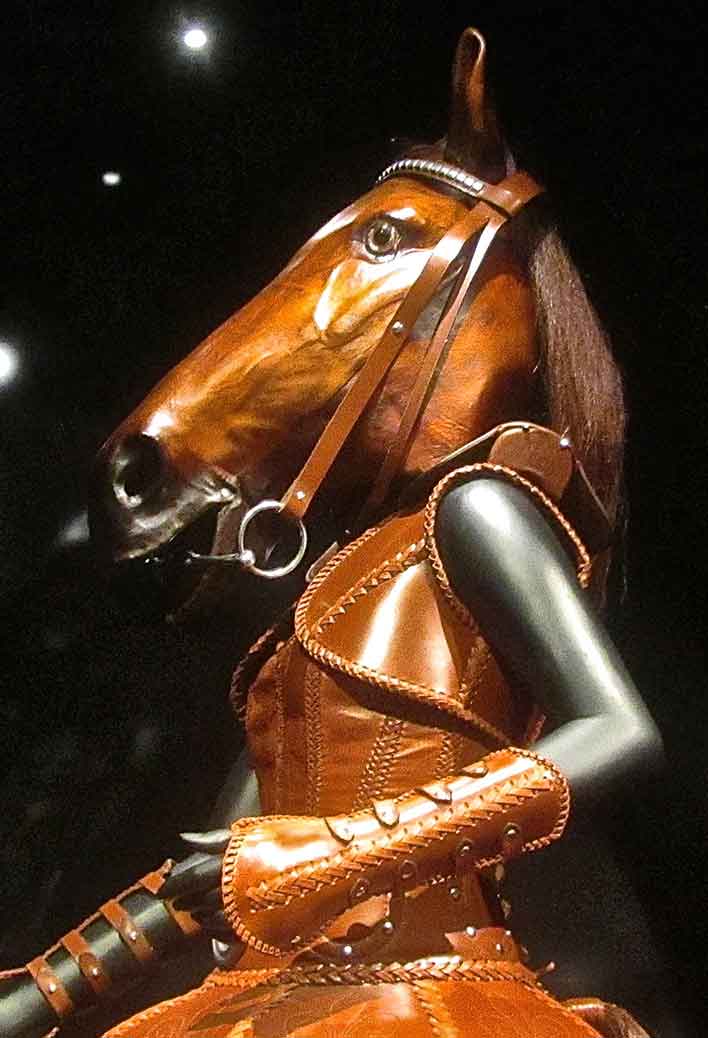


 “As these noble Houyhnhnms are endowed by nature with a general disposition to all virtues, and have no conceptions or ideas of what is evil in a rational creature, so their grand maxim is, to cultivate reason, and to be wholly governed by it. . . . Friendship and benevolence are the two principal virtues among the Houyhnhnms; and these not confined to particular objects, but universal to the whole race; for a stranger from the remotest part is equally treated with the nearest neighbour, and wherever he goes, looks upon himself as at home. They preserve decency and civility in the highest degrees, but are altogether ignorant of ceremony. . . . Instead of proposals for conquering that magnanimous nation, I rather wish they were in a capacity, or disposition, to send a sufficient number of their inhabitants for civilizing [us], by teaching us the first principles of honour, justice, truth, temperance, public spirit, fortitude, chastity, friendship, benevolence, and fidelity.” . . .
“As these noble Houyhnhnms are endowed by nature with a general disposition to all virtues, and have no conceptions or ideas of what is evil in a rational creature, so their grand maxim is, to cultivate reason, and to be wholly governed by it. . . . Friendship and benevolence are the two principal virtues among the Houyhnhnms; and these not confined to particular objects, but universal to the whole race; for a stranger from the remotest part is equally treated with the nearest neighbour, and wherever he goes, looks upon himself as at home. They preserve decency and civility in the highest degrees, but are altogether ignorant of ceremony. . . . Instead of proposals for conquering that magnanimous nation, I rather wish they were in a capacity, or disposition, to send a sufficient number of their inhabitants for civilizing [us], by teaching us the first principles of honour, justice, truth, temperance, public spirit, fortitude, chastity, friendship, benevolence, and fidelity.” . . .
“My Houyhnhnm master . . . had heard, indeed, some curious Houyhnhnms observe, that in most [Yahoo] herds there was a sort of ruling Yahoo (as among us there is generally some leading or principal stag in a park), who was always more deformed in body, and mischievous in disposition, than any of the rest; that this leader had usually a favourite as like himself as he could get, whose employment was to lick his master’s feet and posteriors, and drive the female Yahoos to his kennel; for which he was now and then rewarded with a piece of ass’s flesh. . . . By what I could discover, the Yahoos appear to be the most unteachable of all animals. . . . Yet I am of opinion, this defect arises chiefly from a perverse, restive disposition; for they are cunning, malicious, treacherous, and revengeful. They are strong and hardy, but of a cowardly spirit, and, by consequence, insolent, abject, and cruel. It is observed, that the red haired of both sexes are more libidinous and mischievous than the rest.” . . .
“My design was, if possible, to discover some small island uninhabited, yet sufficient, by my labour, to furnish me with the necessaries of life, . . . so horrible was the idea I conceived of returning to live in the society, and under the government of Yahoos. For in such a solitude as I desired, I could at least enjoy my own thoughts, and reflect with delight on the virtues of those inimitable Houyhnhnms, without an opportunity of degenerating into the vices and corruptions of my own species.”
Gulliver, in Jonathan Swift’s Gulliver’s Travels (1726)

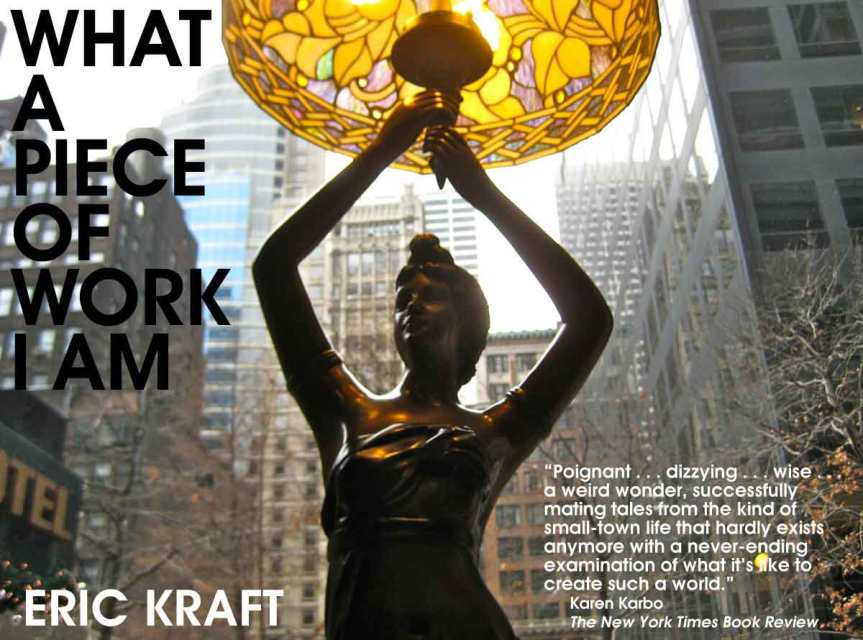
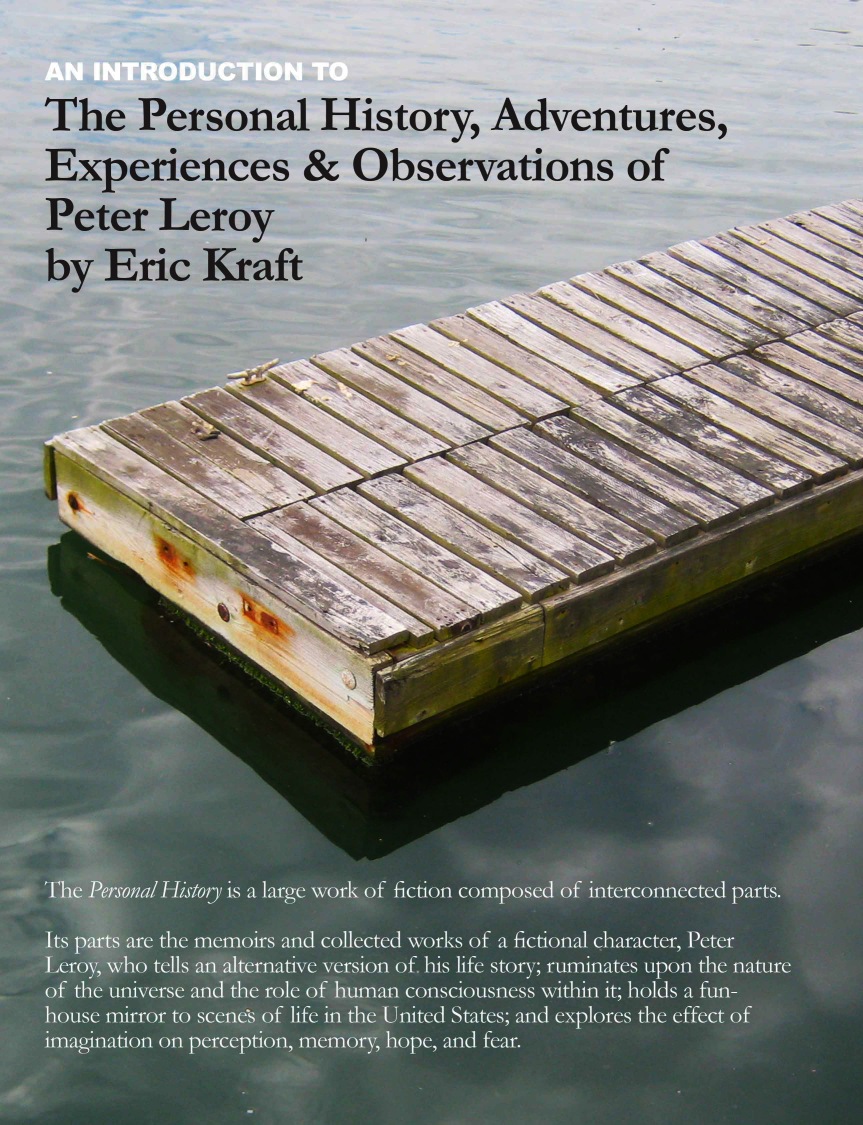
 pity this busy monster, manunkind,
pity this busy monster, manunkind,
not.
e. e. cummings
 I think I could turn and live with animals
I think I could turn and live with animals
Walt Whitman

The Designated Diner
Roberto’s Enoteca e Griglia
Bertram W. Beath
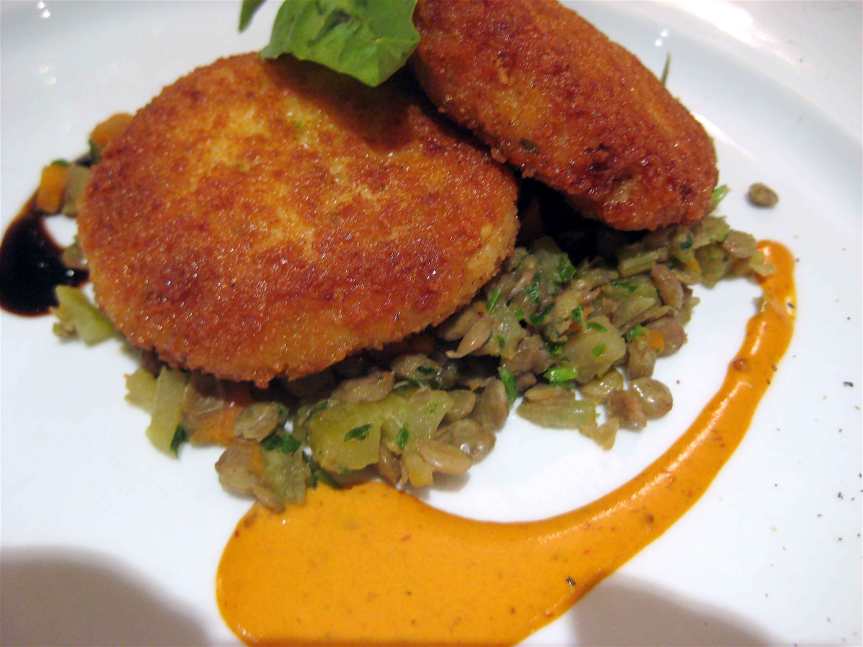
BEFORE I TOOK the first sip of my martini, I said to the beautiful Miranda, “I had an encounter this morning that—”
She put her finger to her lips and inclined her head almost imperceptibly toward the table at my right. I understood. I listened.
A sad young man was saying to the young woman seated across from him, “I’m not really a sad-young-man type, but something terrible has happened to me: I’ve stopped believing in my work, and I’ve stopped believing in myself. My work seems worthless, and I seem worthless.”
“Ooh,” said the young woman. “This is just like that line in a Randy Newman song: ‘I know what’s goin’ on here—y’all have lost faith in yourself.’”
“Ah—well—yeah,” said the young man. “Right. Okay. That’s what’s happened.”
I glanced sidelong in the direction of the young man. Because he was sitting in the seat corresponding to Miranda’s and the young woman was sitting in the seat corresponding to mine, he and I were nearly facing each other. He raised his head and glanced at me at the moment when I glanced at him. Our eyes locked for an instant, then he put his head down and glared at the menu.
“I’ve been there,” said the young woman, looking at her menu, not at the young man. “I lost faith in myself. I lost faith in my work. I felt desperate, probably the way you’re feeling now—but even when I was in despair, I recognized the power that turns quarries into pyramids.”
“What are you talking about?” asked the young man, in a way that made me think that he didn’t understand that she was trying to help him.
“I’m talking about what Samuel Johnson called ‘the resistless power of persistence,’” she said.
I glanced at Miranda. She raised an eyebrow, and she smiled a little smile that I knew meant, “I like this woman.”
Looking at his menu, not at the young woman, the young man said, “If I persist, if I go back to work, I might fail.”
Looking at her menu, not at the young man, the young woman said, “Not in my eyes.”
The young man looked up from his menu, stared at the young woman for a moment, then glanced at Miranda and me. Caught! We pretended total absorption in our menus, but we knew we’d been caught.
“Is the draft too much for you?” he asked the young woman.
“Draft?” she said. “I don’t feel it. I’m fine.”
“It’s too much for me,” he said. He rose, accosted a passing waiter, and arranged for their removal to the opposite side of the room, away from the draft, Miranda, and me.
Before they left the table beside ours, he gave me another glance. In his eyes I saw a shock of recognition, the same shock of recognition that he must have seen in mine. He had seen what I had seen. He knew what I felt. He knew me. He knew me better than I had known myself a few minutes earlier, before I’d overheard what he’d said. He didn’t like me any more than I liked him. He turned away. I turned away.
When the young man and young woman were far enough away from us not to hear us, Miranda said, “It’s a great thing to have someone who believes in you and your work.”
I looked at her. I looked at my menu. Looking at my menu, not at her, I said, “Yes, and it’s an even greater thing to have someone who wants to hear it or see it or read it. That makes all the difference. It can give you the will to go on.”
We ordered. We were served. We began eating. A silence had fallen over us, but Miranda broke it. “This chicken is just wonderful,” she said.
I leaned across the table and whispered, “These might be the best crab cakes I have ever eaten.”
“Really?” she said.
“They are certainly among the top five,” I said. “Well, the top ten.”
At that moment, one of the astonishing coincidences that people deride as beyond belief occurred, and from speakers in the ceiling Billie Holiday began singing “Laughing at Life.”
She put her hand on mine and said, “Stop there, while I can still be happy for you. I want to make a toast.”
“A toast?”
“Yes.” She raised her glass. I raised mine. “To laughing at life,” she said. “Whatever it brings us, we’ll laugh at it, now and when we’re old; and when our last hour comes we’ll meet it with detachment and amusement, and at the end we’ll be able to say that when we might have wept, we laughed.”
